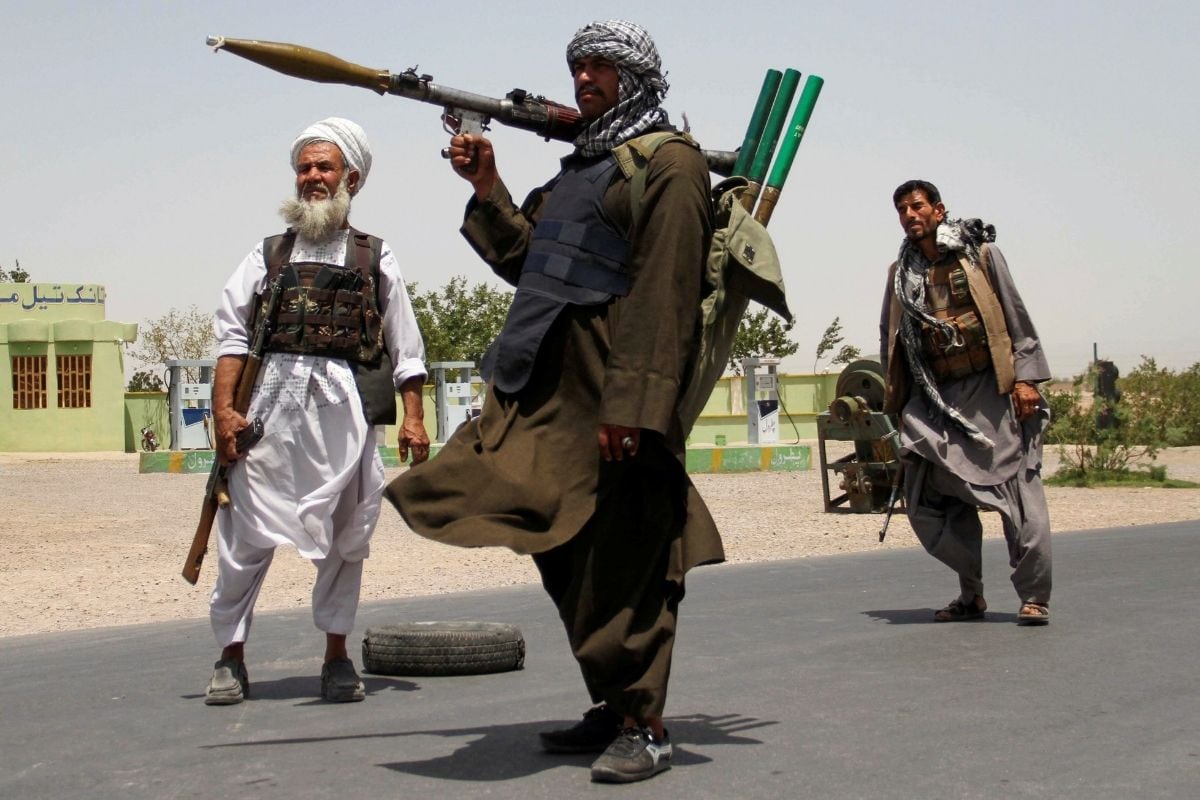The area where India consulate office in Kandahar is located has not fallen into the hands of the Taliban and “Indian consulate is still open. The situation is very normal” Bahir Ahmadi, spokesman of the Kandahar governor said on the WION news. Bashir told the TV channel that the situation has been tense but the area where the Indian mission is located is safe. Even consulates of Pakistan and Iran, situated in the same area, are safe.
Diplomatic sources said reports of shutting of Indian Consulate in Kandahar, are incorrect; the mission remains functional. Due to the deteriorating security situation in Kandahar, some staff of the Indian embassy has been evacuated, emergency services of the consulate remain operational.
Advertisement
According to MEA sources, the local staff at the Indian mission in Kandahar are still attending office and some emergency services are still available.
As the Taliban’s attacks increased on Kandhar, India temporarily withdrew its diplomats for security reasons and local staff of the consulate are carrying emergency services and the consulate remained operational: the works there. Basir said additional forces are being deployed, “there will be no security issue in Kandahar.”
“The enemy’s offensive attacks were repelled, and they suffered heavy and unprecedented casualties, as a result of which 55 enemy soldiers were killed and 90 were wounded,” the governor of Takhar province Abdullah Qarluq told Reuters.
The Taliban had posted a video on social media claiming that its fighters have taken over the Indian Consulate building but the Afghan government has called it the Talibani propagandas.
Talibani propaganda is in full swing. Recently, one of the top leaders of the group said in Moscow that the Taliban has captured 85% of Afghanistan.
“When the Taliban says it controls 85% of Afghanistan’s territory, one should not believe that the Taliban controls 85% of Afghanistan’s territory. It frequently exaggerates its battlefield achievements. Yes, it’s seizing space at an alarming rate in battleground as well as in the propaganda war,” says Saad Illahi, an Afghan expert.
Even the Taliban’s benefactors in Pakistan do not believe these claims. Pakistani army’s military spokesman Major Gen Babar Iftikhar said that the Taliban’s claim of controlling 85% of Afghanistan is exaggerated, “I think it is between 45% to 50 %,” he told the Pakistani media.
Meanwhile, Sheikh Abdul Hakeem, the head of the Doha-based Taliban’s political office is trying to get “support” from Central Asian countries including Russia and China.
“Some countries, including Russia, China and Iran, had some reservations about their own militants presently hiding in Afghanistan. We have signed an agreement with the United States that we would not allow foreign militants to use our soil against any other country, particularly the US and its allies,” reported the Pakistani daily The News quoting a top Taliban leader.
In fact, the Taliban has dispatched letters to the Chinese embassy and explained to them that they should not worry about the Uyghur militants. The Taliban leader “confessed” that the group has fighters from China, Russia, Iran, Central Asia, the Arab world, and Pakistan but these militants would not be allowed to continue their armed struggle against their respective countries in Afghanistan. He made it clear that these foreign militants are guests of Afghanistan.
“We will not ask the foreign fighters to leave their country as they came here as refugees, but will not allow them to exploit our hospitality and soil against these countries.”
Thousands of Pak terrorists from Lashkar-e-Taiba (LeT), Jaish-e-Mohammed (JeM) and other groups like Al-Qaeda are currently fighting alongside the Taliban in Afghanistan in a clear violation of the 2020 peace deal signed by the Taliban and the US. The Taliban has assured Pakistan that the Tehreek-e-Taliban Pakistan (TTP) won’t be allowed to carry out any attack from Afghanistan once the group comes to power.
Meanwhile, the spokesperson of the Taliban Sohail Shaheen told Geo TV that “we care about the oppression of Muslims, be it in Palestine, in Myanmar, or in China, and we care about the oppression of non-Muslims anywhere in the world. But what we are not going to do is interfere in China’s internal affairs.”
Pakistani Prime Minister Imran Khan has recently echoed the same “sentiment.” He said that his country believes in China’s version regarding the treatment of Uighurs. “Because of our close proximity and friendly relationship with China, we actually accept the Chinese version,” Khan said.
The Taliban knows that China is trying to make an entry into post-U.S. Afghanistan with its Belt and Road Initiative (BRI), involves the construction of highways, railways, and energy pipelines between Pakistan and China to Afghanistan.











